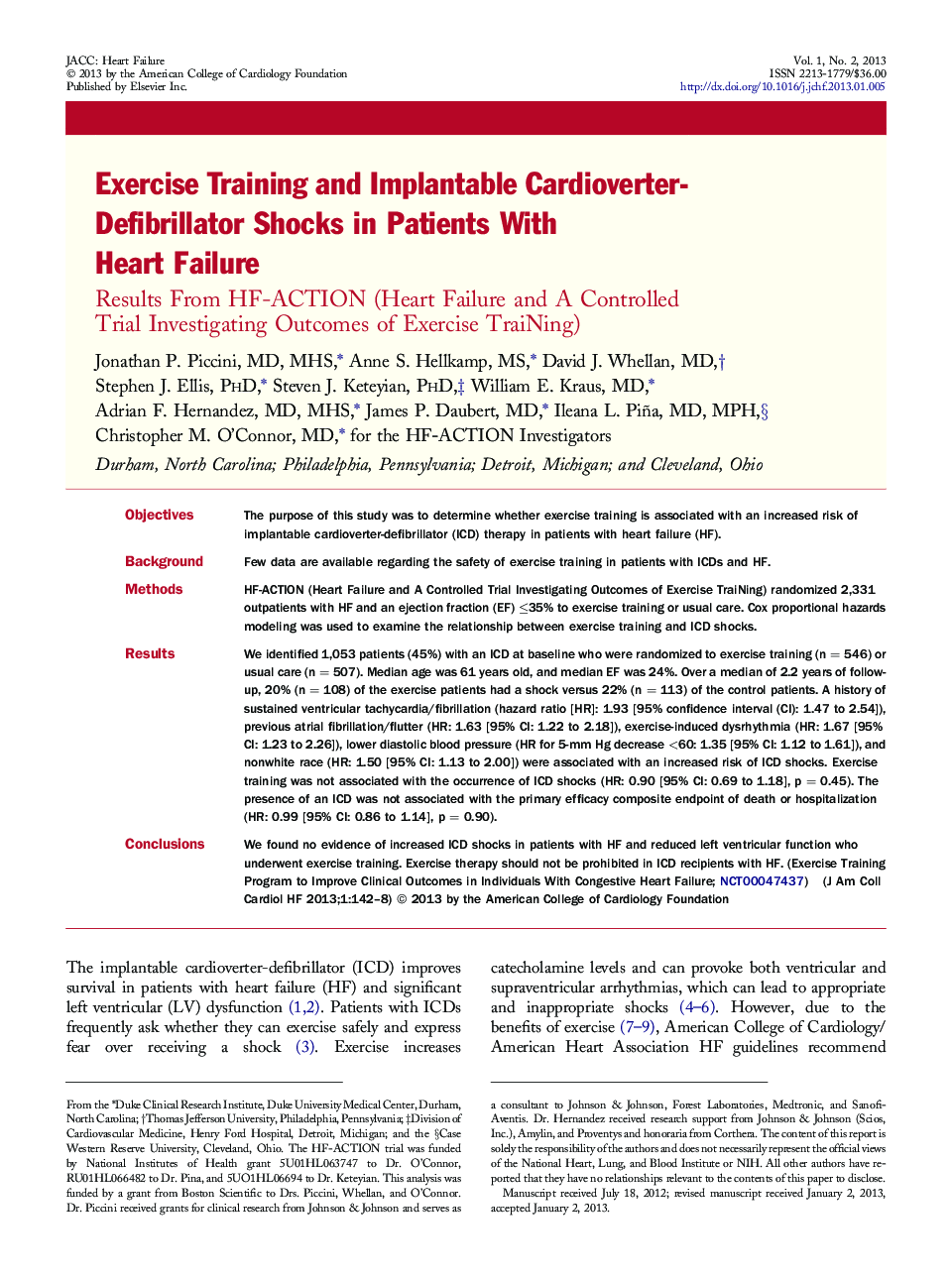| کد مقاله | کد نشریه | سال انتشار | مقاله انگلیسی | نسخه تمام متن |
|---|---|---|---|---|
| 2942653 | 1177140 | 2013 | 7 صفحه PDF | دانلود رایگان |

ObjectivesThe purpose of this study was to determine whether exercise training is associated with an increased risk of implantable cardioverter-defibrillator (ICD) therapy in patients with heart failure (HF).BackgroundFew data are available regarding the safety of exercise training in patients with ICDs and HF.MethodsHF-ACTION (Heart Failure and A Controlled Trial Investigating Outcomes of Exercise TraiNing) randomized 2,331 outpatients with HF and an ejection fraction (EF) ≤35% to exercise training or usual care. Cox proportional hazards modeling was used to examine the relationship between exercise training and ICD shocks.ResultsWe identified 1,053 patients (45%) with an ICD at baseline who were randomized to exercise training (n = 546) or usual care (n = 507). Median age was 61 years old, and median EF was 24%. Over a median of 2.2 years of follow-up, 20% (n = 108) of the exercise patients had a shock versus 22% (n = 113) of the control patients. A history of sustained ventricular tachycardia/fibrillation (hazard ratio [HR]: 1.93 [95% confidence interval (CI): 1.47 to 2.54]), previous atrial fibrillation/flutter (HR: 1.63 [95% CI: 1.22 to 2.18]), exercise-induced dysrhythmia (HR: 1.67 [95% CI: 1.23 to 2.26]), lower diastolic blood pressure (HR for 5-mm Hg decrease <60: 1.35 [95% CI: 1.12 to 1.61]), and nonwhite race (HR: 1.50 [95% CI: 1.13 to 2.00]) were associated with an increased risk of ICD shocks. Exercise training was not associated with the occurrence of ICD shocks (HR: 0.90 [95% CI: 0.69 to 1.18], p = 0.45). The presence of an ICD was not associated with the primary efficacy composite endpoint of death or hospitalization (HR: 0.99 [95% CI: 0.86 to 1.14], p = 0.90).ConclusionsWe found no evidence of increased ICD shocks in patients with HF and reduced left ventricular function who underwent exercise training. Exercise therapy should not be prohibited in ICD recipients with HF. (Exercise Training Program to Improve Clinical Outcomes in Individuals With Congestive Heart Failure; NCT00047437)
Journal: JACC: Heart Failure - Volume 1, Issue 2, April 2013, Pages 142–148